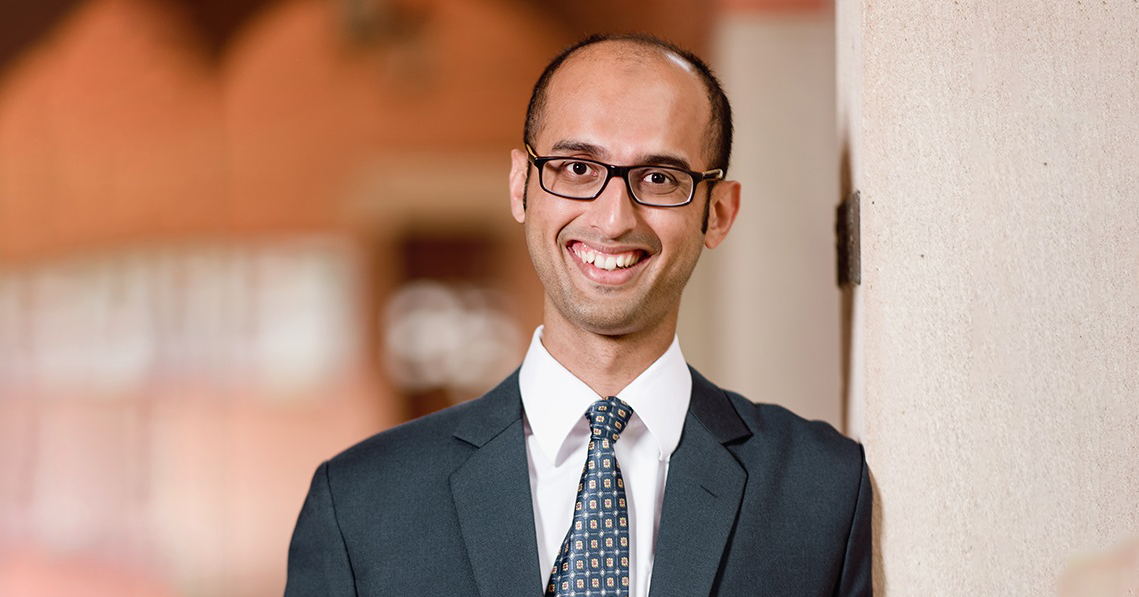Souptik Barua is a postdoctoral research fellow in the Department of Electrical and Computer Engineering (ECE). He works in the Scalable Health Lab with Ashutosh Sabharwal, professor and chair of ECE. The lab develops innovative technologies to solve health problems and medical challenges.
Transcripts have been edited for brevity and clarity.
D2K: What drives you to do postdoctoral research in data science?
Souptik: My research builds on my skills in signal and image analysis, statistics and machine learning. At my core, I enjoy finding patterns in numbers. After I came to Rice for my Ph.D., I got the opportunity to collaborate with MD Anderson Cancer Center and apply these techniques to solving clinical problems and helping patients. I get to use data science skills to find meaningful information, especially informative patterns in medical images and sensor data, to help clinicians understand and manage diseases in novel ways.
D2K: What does a typical day look like as a postdoc researcher?
Souptik: The thing that is similar to what I was doing as a graduate student is the research part. You work on different problems and try to think of creative solutions from a data-science perspective. As a postdoc, I'm involved in writing or co-writing proposals and grant applications. So that's been a new and fulfilling experience for me. Besides that, I am also involved in meetings and representing the lab in front of our clinical partners and other collaborators. I’ve also mentored D2K students in the past and have been mentoring a few research undergraduate interns who have been working with us over the summer.
D2K: Tell us about your experience working with D2K students and mentoring D2K Learning Lab projects?
Souptik: My experience has been wonderful. I have mentored D2K teams for two semesters. The team makeup was different in both semesters. The first semester was mostly first-year graduate students, whereas the team in the second semester that I mentored was mostly undergraduates. It was wonderful being able to talk to and inspire these young researchers about data science and about its potential to improve the way things are done, especially in the medical field where I work in. The students are eager to learn more and they see data science as a tool we use to solve the bigger real-world health problems. It was a really joyful experience for me and a helpful experience, I hope, for the student teams.
D2K: What research/projects are you working on this summer?
Souptik: One of the big projects I'm working on is using data science to better understand diabetes. In recent years, new health technologies -- for example, a device known as a continuous glucose monitor -- have helped us collect a lot of glucose data. What I've been trying to do is to build these data-science frameworks that are sophisticated from the perspective of both the algorithms used and the use of clinical knowledge in their design. So it's a combination of two forms of expertise and I think that is the right way to use data science for healthcare.
The other project that I have been working on is in the field of cardiac arrhythmia, which is actually a continuation of the D2K Learning Lab project. We are continuing to work on using data science to predict a specific kind of arrhythmias that happens commonly in children after surgery.
D2K: Any publications/news that you’d like to share with us or have us highlight?
Souptik: An abstract we submitted based on the work we did with the D2K Lab was accepted by the World Federation of Pediatric Intensive and Critical Care Societies. We have developed a novel ECG-based computational framework to identify junctional ectopic tachycardia, a common arrhythmia in children after heart surgery. The conference was supposed to happen in Mexico City over the summer. Unfortunately, it's been moved online due to COVID-19, but it’s been wonderful to see our work recognized by such a reputable society.
D2K: Any advice to students interested in data science?
Souptik: Data science offers us a lot of opportunities with the large datasets now being collected via various measurements and technologies. There is a huge potential in finding answers that actually help our world, specifically in data science for healthcare. There is a critical need for data scientists to work with these large data sets that clinicians have collected. We need people with skills in machine learning, signal processing, statistics and data science to make sense out of it. The impacts will be large and long-lasting.
To find out more about Dr. Barua's work, visit his website at souptik.rice.edu.
Data Science for Health
Q&A with D2K Postdoc Research Fellow - Souptik Barua

